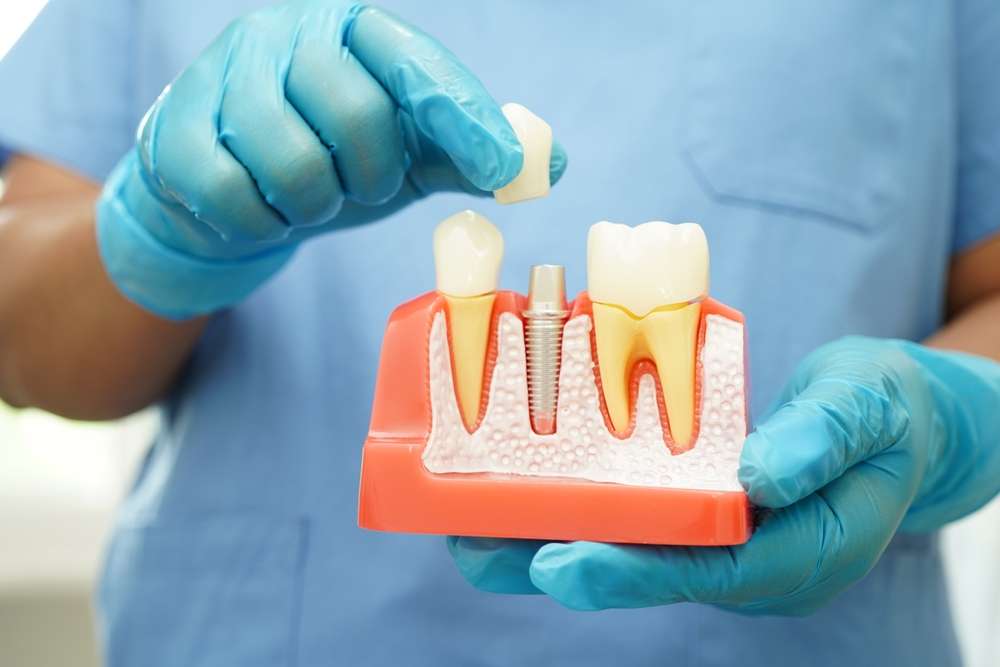Dental Implant Costs and Options in US for 2025: Comprehensive Guide and Alternatives
Dental implants have become a widely adopted solution for replacing missing teeth, offering durability and a natural appearance. As we move into 2025, understanding the financial aspects, available options, and alternatives is essential for making informed decisions. This guide explores the cost variations across different states and cities, breaks down full-mouth implant expenses, and examines insurance and financing solutions to help you navigate this significant dental investment.

Dental implants represent a significant advancement in restorative dentistry, providing patients with a long-term solution for missing teeth. Unlike traditional dentures or bridges, implants are surgically placed into the jawbone, creating a stable foundation for replacement teeth. The procedure typically involves multiple stages, including initial consultation, implant placement, healing period, and final restoration. Understanding the financial commitment and available options is crucial for anyone considering this treatment.
Average Cost of Dental Implants by State and City
The cost of dental implants varies considerably across the United States, influenced by factors such as regional cost of living, practitioner expertise, and local market competition. In major metropolitan areas like New York City, Los Angeles, and San Francisco, a single dental implant can range from $3,000 to $6,000 or more. Mid-sized cities such as Dallas, Phoenix, and Atlanta typically see costs between $2,500 and $4,500 per implant. Smaller cities and rural areas often offer more affordable options, with prices ranging from $1,800 to $3,500.
Geographic location significantly impacts pricing due to differences in overhead costs, laboratory fees, and practitioner demand. Coastal states and densely populated urban centers generally command higher prices, while Midwestern and Southern states may offer more competitive rates. Patients willing to travel for treatment may find substantial savings, though they should factor in additional costs for follow-up appointments and potential complications.
Breakdown of Full-Mouth Implant Costs
Full-mouth dental implant restoration represents a comprehensive solution for patients missing most or all of their teeth. The procedure typically involves placing four to eight implants per arch to support a full set of prosthetic teeth. The total cost for full-mouth implants can range from $20,000 to $50,000 per arch, depending on the complexity of the case, materials used, and the specific technique employed.
Several factors contribute to the overall expense. Initial diagnostic procedures, including CT scans and digital imaging, typically cost $300 to $800. Bone grafting, often necessary when jawbone density is insufficient, adds $500 to $3,000 per graft site. The surgical placement of implants accounts for a significant portion, with costs varying based on the number of implants and surgical complexity. The final prosthetic restoration, whether fixed or removable, can range from $5,000 to $15,000 per arch depending on materials and customization.
Insurance and Financing Options Including CareCredit and FSA/HSA
Dental insurance coverage for implants remains limited, as many plans classify the procedure as cosmetic rather than medically necessary. However, some policies may cover portions of the treatment, such as the crown or certain preparatory procedures. Patients should carefully review their policy details and obtain pre-authorization to understand their coverage limits. Medical insurance may provide partial coverage when tooth loss results from accident or disease.
Financing solutions have become increasingly accessible for dental implant patients. CareCredit, a healthcare credit card, offers promotional financing periods with deferred interest, allowing patients to spread payments over 6 to 24 months or longer. Flexible Spending Accounts (FSA) and Health Savings Accounts (HSA) provide tax-advantaged ways to pay for dental implants, as the procedure typically qualifies as an eligible medical expense. Many dental practices also offer in-house payment plans, allowing patients to make monthly installments directly to the provider.
| Provider Type | Service Offered | Cost Estimation |
|---|---|---|
| Private Dental Practice | Single Implant with Crown | $3,000 - $6,000 |
| University Dental Schools | Single Implant with Crown | $1,500 - $3,500 |
| Dental Implant Centers | Full-Mouth Restoration (per arch) | $20,000 - $40,000 |
| Periodontist Specialists | Single Implant Placement | $2,500 - $5,000 |
| Oral Surgeons | Complex Cases with Bone Grafting | $4,000 - $8,000 |
Prices, rates, or cost estimates mentioned in this article are based on the latest available information but may change over time. Independent research is advised before making financial decisions.
Alternative Options to Traditional Dental Implants
For patients seeking alternatives due to cost or medical considerations, several options exist. Mini dental implants, smaller in diameter than traditional implants, offer a less invasive and more affordable solution, typically costing $500 to $1,500 per implant. These work well for stabilizing dentures but may not be suitable for all situations. Implant-supported dentures provide a middle ground, using fewer implants to secure removable prosthetics, with costs ranging from $10,000 to $25,000 per arch.
Traditional fixed bridges and removable partial dentures remain viable alternatives, with bridges costing $2,000 to $5,000 per unit and partial dentures ranging from $700 to $2,500. While these options are more affordable upfront, they may require more frequent replacement and maintenance over time. All-on-4 or All-on-6 implant techniques offer full-arch restoration using fewer implants, potentially reducing costs by 20 to 30 percent compared to traditional full-mouth implants.
Factors Affecting Long-Term Value and Success
When evaluating dental implant costs, considering long-term value is essential. High-quality implants from reputable manufacturers typically have success rates exceeding 95 percent over 10 years. Proper maintenance, including regular dental cleanings and good oral hygiene, extends implant longevity significantly. Cheaper alternatives or less experienced practitioners may result in higher failure rates, necessitating costly revisions or replacements.
The choice of materials also impacts durability and aesthetics. Titanium implants remain the gold standard for biocompatibility and strength, while zirconia implants offer a metal-free alternative for patients with sensitivities. Crown materials range from porcelain-fused-to-metal to all-ceramic options, each with different cost points and aesthetic outcomes. Investing in quality materials and experienced practitioners often proves more economical over the implant’s lifespan.
Dental implants require a substantial financial commitment, but understanding the cost variations, financing options, and alternatives empowers patients to make informed decisions. Regional pricing differences, insurance coverage limitations, and available financing solutions all play crucial roles in treatment accessibility. Whether opting for traditional implants, exploring alternatives, or considering full-mouth restoration, thorough research and consultation with qualified professionals ensure the selection of the most appropriate and financially viable solution for individual needs.
This article is for informational purposes only and should not be considered medical advice. Please consult a qualified healthcare professional for personalized guidance and treatment.




